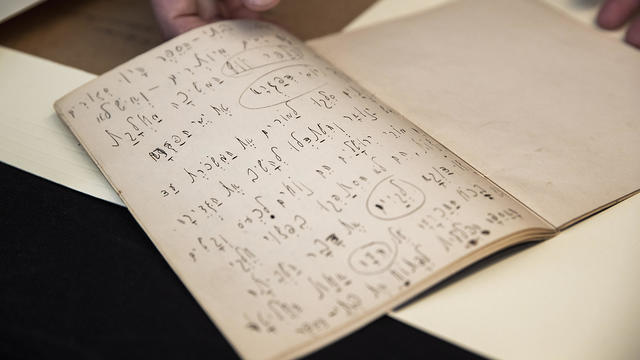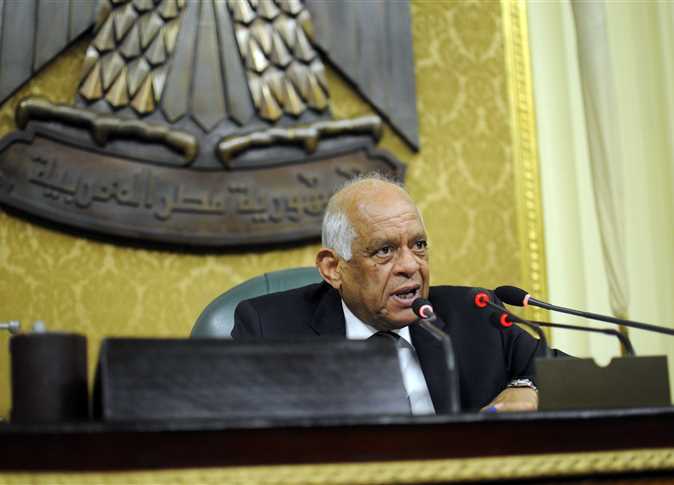
The profile picture of the “Hayatem for President” Facebook page is one of the belly dancer and actress in her young days, pausing seductively in full make-up against a bright red background. Is the campaign a joke? Yes. But sometimes, fiction can only try hard to parallel the absurdity of reality
On the image’s background, sarcastic commentary related to the ongoing political developments reads: “A civil state with a sexual reference,” instead of the famous statements calling for “A civil state with an Islamic reference.” The celebrity’s presidential campaign started as a comedic hashtag (#HayatemForPresidency), yet some people took it seriously, forcing Hayatem to publicly announce that she was not planning on entering the presidential race.
Over the past few months, a number of similar Facebook pages, nominating artistic and cultural figures that have no chance of running, have emerged in parallel to the feverish campaigns of presidential hopefuls. Aside from Hayatem’s, another page has been created in support of the late Mahmoud al-Meligy, the villain of Egyptian cinema; Miss Hanafy, an transsexual character from the 1954 Ismail Yassin film with the same name; and even late Czech writer Franz Kafka.
“I first started the [Hayatem] campaign as a joke like other jokes I play on social media,” says Eslam al-Refae, who manages the campaign’s Facebook and Twitter accounts with a group of friends. Refae is a Twitter guru, known as Khorm ("Hole"), with around 36,000 followers. He was, however, surprised at how the joke was picked up by several TV channels and newspapers.
The group chose Hayatem because she has been out of the spotlight for years. “Growing up, she represented for us the B-movie star,” says Refae.
They did not mean to offend her in any way, he emphasizes. “I did her a great favor with this campaign; she has become famous again, and now I hear that she is going to write her memoirs or something.”
Although the campaign was just meant as a funny experiment, a prank, Refae said he was happy that some people bought into it. “People need shocks, and through these games we unpack more serious issues.”
Refae, who tends to have liberal views, says he had intended to vote for the ultra-conservative preacher Hazem Salah Abu Ismail until he was recently disqualified. “The Islamic experiment has to reach its extreme limit, and then we can overcome it,” he told Egypt Independent.
In the same way, storyteller Hamada Zidan found no better character than Miss Hanafy to nominate for president on Facebook. Miss Hanafy’s page does not have the same sense of satire as Hayatem’s. Its content is rather serious. The banner shows a photograph of actor Ismail Yassin as Miss Hanafy, with the old royal Egyptian flag as backdrop. This nostalgia for the past is strongly reflected in the posts published on the page.
Zidan says he chose the character because in the film the narrow-minded male protagonist, also acted by Yassin, becomes a woman and starts seeking freedoms that he himself denied women as a man. Zidan plans to push it further by writing up a platform for Miss Hanafy as president, responding to people’s questions on the page.
Other Facebook pages have been less successful with the public, but remain creative. The one dedicated to the villain of the silver screen uses a banner similar to that of Mohamed ElBaradei, only instead of his face they have Meligy looking sinister. Another post shows a picture of Meligy from the Egyptian classic “Al-Ard.” In the film, Meligy’s character Abu Souilam fights authority and feudal landlords.
While most groups chose a locally identifiable cultural figure, some find inspiration elsewhere. The "Kafka for president" Facebook page was inspired by a black and white picture found online that showed an American woman protesting against the nomination of Hubert Humphrey as US president in 1968. The banner she holds called for nominating Kafka instead. The page administrators posted a picture of Kafka, as well as numerous slogans inspired by his writings such as “Division, fragmentation, dwarfing, destroying and tearing down the state,” and “together to turn the authority to a nihilistic void,” inviting Facebook users to add their own comments and relate them to the ongoing political events.
One, for instance, wrote: “Kafka is the first who destroyed the legend of fair judiciary in his novel ‘The Trial.’”




